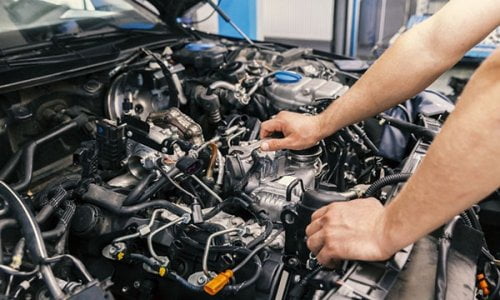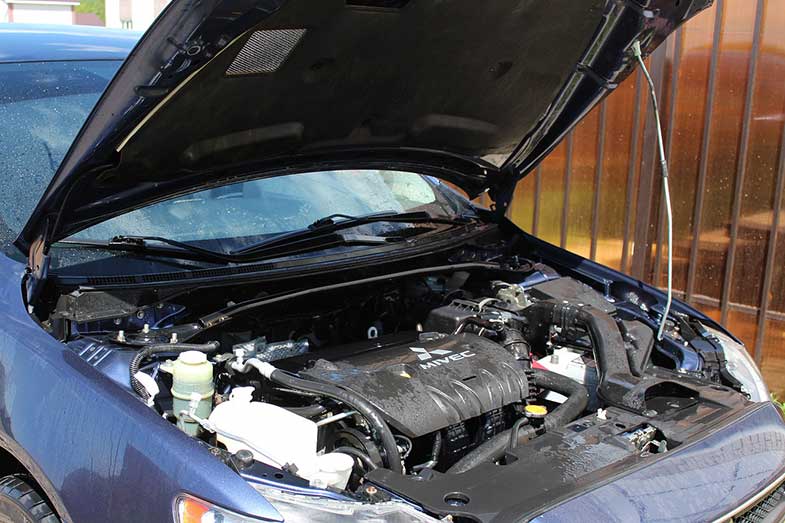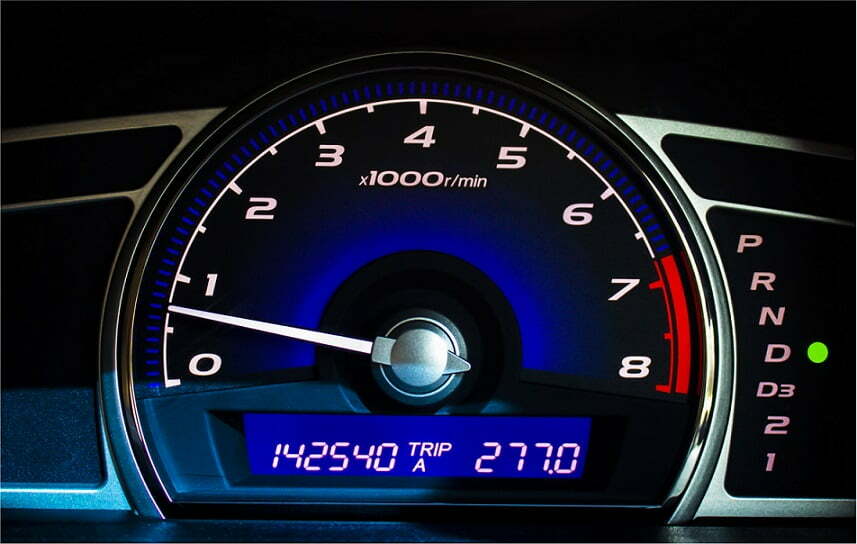An engine overhaul involves disassembling, examining, and replacing worn parts as part of a major repair or rebuild of the engine. It is typically performed when an engine is not functioning correctly or has become damaged, and the goal is to restore the engine to its original condition or to improve its performance. An engine overhaul can be a complex and time-consuming process, and it is typically more expensive than other types of engine repairs.
In this article, we will take a closer look at what an engine overhaul is, when it may be necessary, and how it is performed. We will also discuss the factors that can affect the cost and duration of an engine overhaul, and we will provide some tips for deciding whether or not an engine overhaul is the right course of action
What is an Engine Overhaul?
An engine overhaul is a comprehensive process that involves disassembling, inspecting, cleaning, and repairing various components of an engine. It is typically done to restore the engine to its original condition or to improve its performance.
Engine overhauls can be performed on a variety of engines, including those in automobiles, airplanes, boats, and other types of machinery. The specific steps involved in an engine overhaul will vary depending on the type of engine and the extent of the repairs needed.
The first step in an engine overhaul is to disassemble the engine. This involves removing all of the major components, such as the cylinder head, crankcase, and pistons. Once all of the components have been removed, they are carefully inspected for wear and damage. Any damaged or worn parts are replaced with new ones.
Next, the engine is cleaned to remove any dirt, debris, or other contaminants that may have accumulated over time. This is typically done using specialized cleaning equipment, such as high-pressure hoses and ultrasonic cleaners.
After the engine has been cleaned and inspected, it is reassembled using new or refurbished parts as needed. The engine is then tested to ensure that it is running properly and meeting all of the manufacturer’s specifications.
Overall, an engine overhaul is a major undertaking that requires specialized knowledge and expertise. It is typically best left to professional mechanics or technicians who have the necessary training and equipment to complete the job correctly. However, understanding the basic process of an engine overhaul can help you make informed decisions about the care and maintenance of your vehicle or machinery.
Reasons your car need an engine overhaul?
There are several reasons why your car might need an engine overhaul. Some of the most common reasons include:
Wear and tear
Wear and tear is one of the most common reasons why a car might need an engine overhaul. As an engine ages, its components will naturally wear out and need to be replaced. An engine overhaul allows for the replacement of these worn parts, ensuring that the engine continues to run smoothly and efficiently.
Some of the specific components that might need to be replaced during an engine overhaul due to wear and tear include:
- Pistons: Pistons are subject to a lot of wear and tear as they move up and down in the cylinders. Over time, they can become damaged or worn, leading to reduced performance and fuel efficiency.
- Bearings: Bearings are used to support and reduce friction in moving parts, such as the crankshaft and camshaft. As they age, they can become worn and may need to be replaced to ensure smooth operation of the engine.
- Rings: Rings are used to seal the combustion chamber and prevent leaks. As they age, they can become worn and may need to be replaced to maintain proper sealing and prevent leaks.
- Valves: Valves are used to control the flow of air and fuel into the cylinders. Over time, they can become worn or damaged, leading to reduced performance and fuel efficiency.
- Gaskets: Gaskets are used to seal various components of the engine, such as the cylinder head and crankcase. As they age, they can become brittle and may need to be replaced to prevent leaks.
Poor performance

Poor performance is another common reason why a car might need an engine overhaul. If your car’s engine is not running as well as it should, an overhaul might be necessary to diagnose and fix the problem. This could include replacing worn or damaged components, or upgrading to higher-performance parts
Some specific signs of poor performance that might indicate the need for an engine overhaul include:
- Reduced power: If your car’s engine is not producing as much power as it used to, it could be a sign that some of the components are worn or damaged. An overhaul can help to diagnose and fix these problems.
- Poor fuel efficiency: If your car is using more fuel than it used to, it could be a sign that the engine is not running as efficiently as it should. An overhaul can help to identify and fix the cause of the poor fuel efficiency.
- Knocking or pinging noises: If your car’s engine is making unusual noises, such as knocking or pinging, it could be a sign of problems with the internal components. An overhaul can help to identify and fix these issues.
- Excessive smoke: If your car’s engine is producing excessive smoke, it could be a sign of problems with the internal components. An overhaul can help to identify and fix these issues.
Overall, if you are experiencing poor performance from your car’s engine, an engine overhaul might be necessary to diagnose and fix the problem. However, it’s important to keep in mind that engine overhauls can be costly and time-consuming, so it’s important to weigh the potential benefits against the costs before making a decision.
Damage

Damage is another reason why a car might need an engine overhaul. If the engine has suffered damage, such as from an accident or from running on low-quality fuel, an overhaul might be necessary to repair or replace damaged components.
Some specific types of damage that might require an engine overhaul include:
- Physical damage: If the engine has been involved in an accident or has sustained physical damage, it may need to be repaired or replaced. An engine overhaul can help to identify the extent of the damage and determine the necessary repairs.
- Water damage: If the engine has been exposed to water, such as from flooding, it may need to be repaired or replaced. An engine overhaul can help to identify the extent of the water damage and determine the necessary repairs.
- Corrosion: If the engine has become corroded, it may need to be repaired or replaced. An engine overhaul can help to identify the extent of the corrosion and determine the necessary repairs.
- Wear from low-quality fuel: If the engine has been running on low-quality fuel, it may have sustained additional wear and damage. An engine overhaul can help to identify and fix these problems.
Overall, if your car’s engine has suffered damage, an engine overhaul might be necessary to repair or replace damaged components. However, it’s important to keep in mind that engine overhauls can be costly and time-consuming, so it’s important to weigh the potential benefits against the costs before making a decision.
Lack of maintenance
Lack of maintenance is one of the main reasons that a car may need an engine overhaul. Proper maintenance is essential for the health and longevity of a car’s engine. This includes regular oil changes, keeping up with recommended service intervals, and addressing any issues that arise in a timely manner.
If a car is not properly maintained, it can lead to a variety of issues that may eventually require an engine overhaul. For example, if the oil is not changed regularly, it can become contaminated with dirt and debris, which can cause wear and damage to the engine’s components. Similarly, if other fluid levels, such as coolant or transmission fluid, are not kept at the correct level, it can cause problems with the engine.
High mileage

High mileage is another common reason that a car may need an engine overhaul. As a car’s engine accumulates more miles, it is subject to more wear and tear. This can cause the various components of the engine to become worn or damaged over time.
If a car has high mileage, it may be more prone to needing an engine overhaul. This is especially true if the car has not been properly maintained and has accumulated a lot of miles without regular maintenance or repair.
Ultimately, the decision to undergo an engine overhaul will depend on the specific needs of your car and your own goals for it. If you are experiencing problems with your car’s engine or simply want to improve its performance, it might be worth considering an overhaul. However, it’s important to keep in mind that engine overhauls can be costly and time-consuming, so it’s important to weigh the potential benefits against the costs before making a decision.
Tips for deciding whether engine overhaul is necessary or not
- Determine the root cause of the problem. Before deciding on an engine overhaul, it is important to accurately diagnose the problem with the engine. An engine overhaul may not be necessary if the issue can be resolved with a simpler repair.
- Consider the age and condition of the engine. If the engine is old or has significant wear and tear, it may be more cost-effective to replace it with a new or rebuilt engine rather than performing an overhaul.
- Compare the cost of the overhaul to the value of the vehicle. An engine overhaul can be a significant expense, and it may not be worth it if the vehicle is not worth much.
- Consider the availability of parts. An engine overhaul may not be practical if certain parts are no longer available or are very expensive to obtain.
- Get a professional opinion. A qualified mechanic can provide valuable advice on the best course of action and can give an estimate of the cost and duration of the repair.
- Look into financing options. If the cost of the overhaul is a concern, it may be worth looking into financing options such as a loan or a payment plan.
- Consider the long-term benefits. While an engine overhaul can be expensive in the short term, it may provide long-term benefits such as improved performance and reliability.
Overall, the decision to perform an engine overhaul should be based on a careful consideration of all of the available options and a thorough understanding of the condition of the engine and the costs and benefits of the repair.
FAQS
Q: What are the signs that an engine overhaul may be necessary?
A: There are several signs that may indicate that an engine overhaul is necessary, including:
- Decreased engine performance or power
- Increased fuel consumption
- Excessive oil consumption or oil leaks
- Engine making knocking or pinging noises
- Excessive exhaust smoke
- Overheating or coolant loss
Q: How much does an engine overhaul cost?
A: The cost of an engine overhaul can vary widely, depending on the type of engine, the extent of the damage, and the parts and labor required to repair it. In general, an engine overhaul can cost anywhere from a few thousand dollars to several thousand dollars.
Q: How long does an engine overhaul take?
A: The duration of an engine overhaul can vary depending on the complexity of the repair and the availability of parts. On average, an engine overhaul can take anywhere from a few days to several weeks to complete.
Q: Is it worth it to get an engine overhaul?
A: Whether or not an engine overhaul is worth it depends on the specific circumstances of the engine and the cost of the repair. In some cases, an engine overhaul may be the most cost-effective option for restoring the engine to good working condition. In other cases, it may be more cost-effective to simply replace the engine with a new or rebuilt one.
Q: Can an engine be overhauled more than once?
A:Yes, an engine can be overhauled more than once if necessary. However, each successive overhaul may be more expensive and time-consuming than the previous one, as more parts may need to be replaced and the engine may be more worn. It is generally more cost-effective to perform a thorough overhaul the first time, rather than trying to patch up an engine with multiple partial overhauls.
CONCLUSION
In conclusion, An engine overhaul is a major repair or rebuild of an engine that involves disassembling, inspecting, and replacing worn parts. The goal of an engine overhaul is to restore the engine to its original condition or to improve its performance. The cost of an engine overhaul can vary widely, and the duration of the repair can range from a few days to several weeks. Whether or not an engine overhaul is worth it depends on the specific circumstances of the engine and the cost of the repair. In some cases, it may be more cost-effective to simply replace the engine with a new or rebuilt one. Ultimately, the decision to perform an engine overhaul should be made after carefully considering all of the available options and consulting with a qualified mechanic.
FOLLOW US
